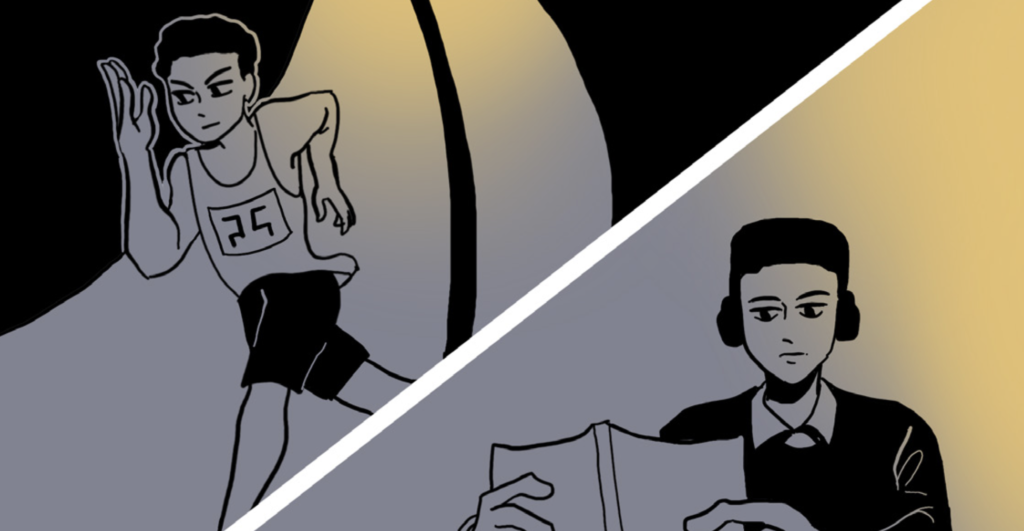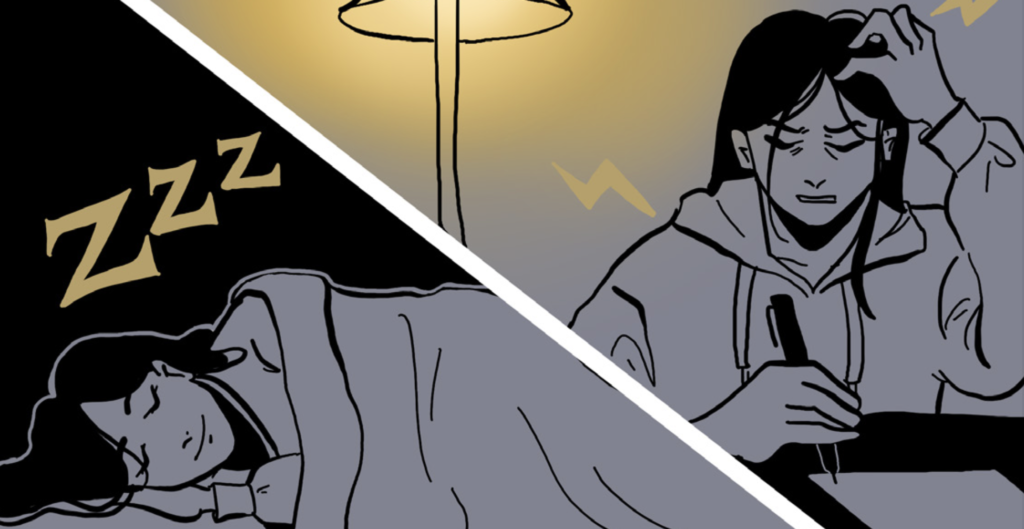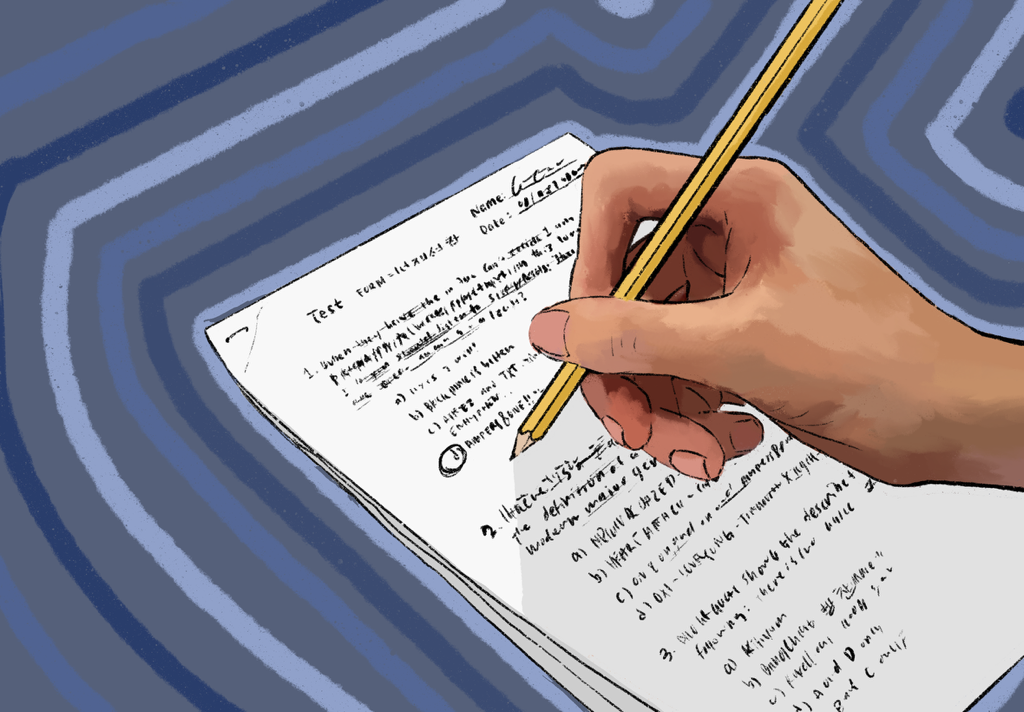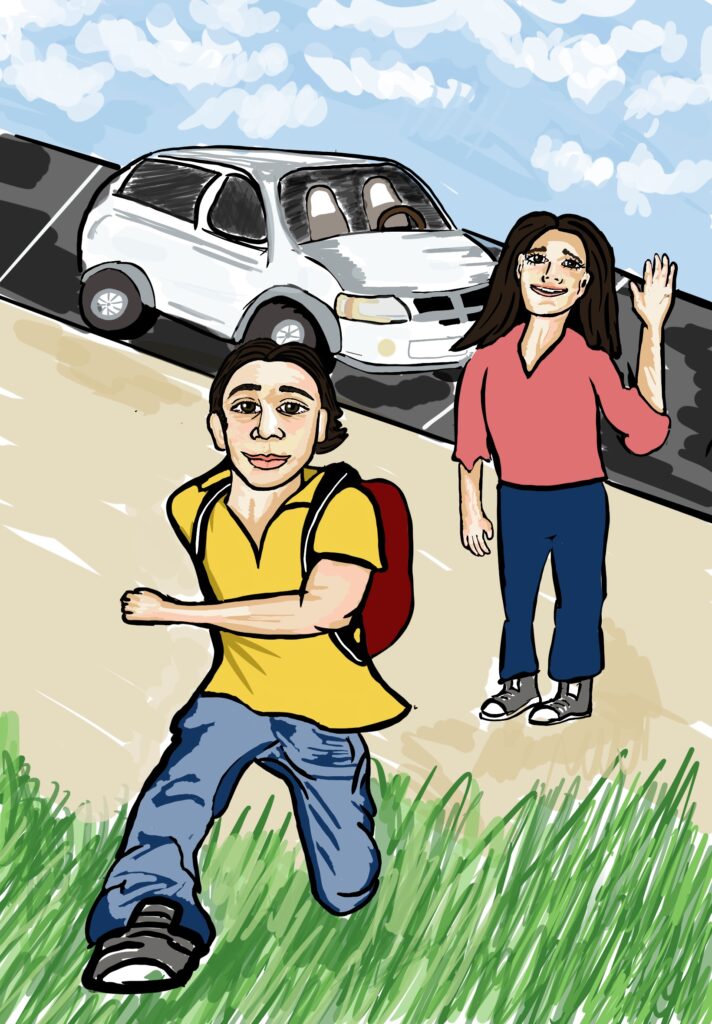With mandatory lights out and the inability to receive a sixth-course exemption, third- and fourth-formers enjoy few of the privileges granted to upperclassmen. Teniola Obayomi ’25 and Francesca Howard ’26 battle it out, debatinng whether these privileges should be extended to underclassmen or remain exclusive to upperclassmen.
Should underclassmen be exempt from their afternoon activity because of a sixth course?

Obayomi: No, sixth-course exemptions stifle time-management development
By prohibiting sixth-course exemptions for underclassmen, students are forced to learn important studying skills and familiarize themselves with Choate’s academic expectations. If an underclassman continuously relies on a sixth-course exemption, they will not have the skills or patience to adjust when their workload increases with the level of difficulty of their classes. Additionally, by participating in an interscholastic sport or a group intramural activity, underclassmen are able to make new friends rather than use that time to compensate for a sixth course.
Sixth-course exemptions encourage students to take six courses, and, for the sake of both mental health and happiness, underclassmen should be focusing on forming bonds with their peers through sports and free time instead.
Howard: Yes, sixth-course exemption gives students freedom and flexibility in their academic pursuits.
This rule states that students who opt to take a sixth course are exempt from participating in an afternoon activity or sport. Currently, only upperclassmen are allowed sixth-course exemptions; however, I firmly believe that underclassmen should be allowed this option as well.
At a place like Choate where students have their plates full with extracurriculars and work, time is of the essence. By widening this policy to encompass more forms, students of all ages would be given the opportunity to focus on and excel in their academics. Students are also dissuaded from taking more classes because of the tightly packed schedule and heavy workload. Allowing such an exemption would allow students both more flexibility in selecting their classes and a freedom to explore the many classes Choate has to offer.
It is also important to note that not all Choate students are athletes, and many do not have a strong interest or commitment to sports. Some would rather take advantage of the unique curriculum Choate offers. It is essential that the Administration considers the various needs of the student body when developing school policies. This is a question of student autonomy and of the right of Choate students to take responsibility for their personal growth.
Should underclassmen have lights out?

Obayomi: No, eliminating lights out would allow students to independently develop healthy sleep habits that suit their bodily needs.
Rules are crucial, especially for growing teenagers. However, unenforceable ones — like lights out — are pointless. Unlike upperclassmen, third-formers must turn their lights off by 10:45 p.m. and fourth-formers by 11 p.m. The restriction is meant to help students get enough sleep, but it is significantly flawed.
As is, few students actually go to sleep when their prefects turn their lights off. In fact, blue light from devices is more harmful than the overhead light in a dorm room due to the way it suppresses the body’s release of its sleep hormone, melatonin, yet there is no rule concerning this. Despite how frustrating it would be, lights out would be more effective if the practice of confiscating devices was added to the current practice of turning off the overhead light.
By giving students full responsibility over their sleep schedules, the School can allow them to practice decision-making skills. One may ask, “Should I stay up all night watching TikToks or be well-rested for class?”
Perhaps, underformers will develop healthy sleep habits from trial and error. Developing skills independently is more effective than being forced to adopt habits.
Howard: Yes, lights out helps to build healthy habits.
The lights out policy is imperative. Sufficient bed rest is foundational to the overall health and well-being of teenagers and has been scientifically proven to improve concentration and enhance academic performance. A 10:45 p.m. bedtime might seem too early to some of the night owls out there, but lights out provides a framework that helps third-formers adjust to the new environment at boarding school. The policy encourages them to take full advantage of their free periods and establish healthy habits that will stick with them later on in life. Although it may be unpopular amongst some students, the lights out policy is a blessing in disguise.




